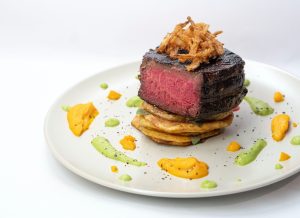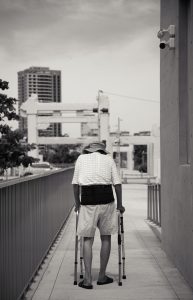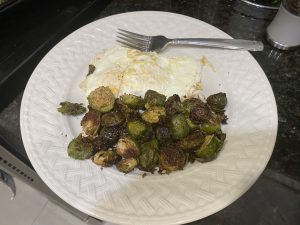Arthritis
Thirst, Sweat, & Urine: What is Normal?

In contrast to the requisite ruling out of red flags by most nurses in conventional medical settings, the reason Chinese Medical practitioners ask about almost every system in your body is because we are diagnosing based on complete patterns—not just symptoms.
For example, if someone comes in for acid reflux, we cannot know their prescriptions until we know how often they urinate or poop, what each one is like, whether they experience headaches or dizziness, which part of the head they get their headaches in, how is their appetite, how thirsty they are during the day versus in the evening, etc. etc. This is because we are one of the only true forms of holistic medicine.
So, what is normal?
A normal amount of urination is approximately 6 times a day (yes, this includes waking at night). Much less than that and you are likely either retaining, or not drinking enough water in the first place. More than 6 indicates either a weakness in the urogenital microbiome, or excessive inflammation in the urogenital microbiome, which over time can lead to local weakness by putting strain on it. The remainder of the intake questions will determine which of the two is the case.
People should sweat, but not excessively so. Chinese Medicine is critical of HIIT or marathon training, hot yoga, and sauna therapy in most cases. While these might all feel great in the short-term and/or be proven to offer certain isolated benefits in the short-term, we believe they ultimately deplete the body’s healthy metabolic fluids. On the other hand, never sweating (exercising) at all is obviously just as harmful.
While some people barely break a sweat even when they exercise, others are drenched by the time they finish their morning commute, especially triggered by certain climates or seasons. The former can either indicate body fluid depletion or a malfunction of the immunological “qi.” The latter can either indicate inflammation, fluid retention, or also a malfunction of the immunological “qi.” This is where diagnoses and prescriptions get tricky.
Many western doctors have now begun to recognize the health benefits of the Chinese herb, astragalus, which on one hand is great. On the other hand, their recognition by way of empirical studies poses the challenge of having no comprehension of Chinese Medicine. If you give astragalus to the former example of a “cold-body person” with a simple immunological malfunction they will feel amazing and sing your praises. If you give it to someone with both immunological malfunction AND fluid deficiency it will do almost nothing. Worse, if you give it to a “hot-body person” with inflammation and fluid retention they will feel much worse.
Finally, it is normal to be thirsty, for 6-9 cups of water per day. A lack of thirst tells us there is fluid retention in the microbiome, signaling to the brain that it’s got plenty of liquid down here—no need to hydrate! This is dangerous, and better to fake it ‘til you make it in acquiring thirst. On the other pole are those who are ravenously or insatiably thirsty, which informs us of inflammatory heat in either their respiratory microbiome, gastrointestinal microbiome, or both, drying out their fluids. As always, the most complicated patterns are those who are generally unthirsty followed by sudden bouts of desperate thirst. This is a combination pattern that requires more thought, trial, and error.
I hope this was interesting and informative. One of western medicine’s shortcomings is its reliance on tests and labs to determine whether we are healthy or normal. While these are undeniably valuable, they tell only part of the story, which is why so many diseases get caught too late. Chinese Medicine is more brilliant in its neurotic recognition of pathologies in any abnormality, any imbalance, as something to rectify before it spirals into disease.
How Much Animal Protein Should I/We/U Eat?

I got some great feedback from last week’s newsletter, not the least of which in the form of an inquiry and idea for elaboration on what is a “mindful” amount of animal protein for one to consume. Obviously, this is a subject of great debate—as are most dietary recommendations—and one Chinese medicine has strong opinions on.
Ironically, it was “The China Study” (2005) that prompted even greater popularity for vegetarianism, in spite of my understanding its conclusion was predicated on the assumption that if less is good, then none must be great. Traditional Chinese Medicine does not agree.
It would be impossible to know exactly how much animal protein is advisable for any one individual, but relatively easy to offer some general guidelines:
- Eat only wild fish, grass-fed or grass-finished meats, sans hormones or antibiotics. I recommend Whole Foods, Vital Choice, or Butcher Box.
- Eat more animal protein in winter and less in summer—approximately once a day in winter (in addition to eggs is fine, since eggs are light and easily digestible in the absence of any specific sensitivity) and 2-4 times a week in summer.
- Women should eat more red meat on their menses.
- Women should eat more red meat before, during, and after pregnancy.
- Elderly people need more animal protein than younger people.
- Everyone needs more animal protein after surgery, or after something like a marathon—basically any physical trauma.
- Animal protein should make up the smallest portion of food on your plate. In no way does this mean it should not appear on your plate, nor that its appearance is that of an allowable indulgence. Just that if each meal could be looked at as an herbal formula, the most beneficial dosage of steak would be smaller than that of broccoli.
- It is a kind gesture to say a quick prayer and thank the animal before consumption.
- People with a great deal of systemic “damp heat” should eat less animal protein than those with systemic “cold” and “blood deficient” constitutions. The challenge of course lies in that damp heat can dry out our body fluids and create blood deficiency, which causes us to require more meat. Also cold, over time, can create damp heat in the typical manifestation of inflammation as result of weakness.
How do you know who you are? It’s tough.
“Cold people” tend to have lesser appetites, more digestive complaints, and more frequent bowel movements. They’re rarely thirsty and rarely sweat, but they tend to sleep great.
“Damp heat people” tend to huge appetites, iron stomachs, and less frequent bowel movements, which doesn’t seem to bother them at all. They’re more likely ravenously thirsty and sleep is a great challenge.
Obviously, there are exceptions to these rules, but mostly as a result of one pathology lingering chronically for long enough to complicate the pattern by engendering its opposite. This is what makes real medicine so challenging. In school we learn case studies as if people are one or the other—either warm or cold-bodied—then we get into practice and quickly realize if only it were so simple. People are complex. So are our bodies, which means so should be its fuel sources.
I love my vegan friends, I respect vegetarianism for ethical reasons, but per usual, I believe that Chinese Medicine’s more moderate and discerning perspective on diet is most logical.
The “Unresolved Exterior Pathogen”

I think one of my favorite concepts in Chinese Medicine is that of the “unresolved exterior pathogen.” What does it mean? When we catch a cold, whether bacterial or viral, most cases should be vented, sweated out, while we rest as much as possible and consume warm foods, such as the classic chicken soup to support our “wei qi,” or immunological cellular energy.
Obviously most modern people do not do this. We take over-the-counter cough suppressants, congestion suppressants, anti-pyretics, and every other suppressant to make us feel as comfortable as possible until the cold resolves… or at least appears to.
This is a totally understandable mistake. First of all, most people don’t know that Chinese Medicine can treat the common cold (along with nearly everything else under the sun), and even if they did herbalists and herbal medicine are not readily available to most.
From a Chinese Medical perspective when a cold is suppressed it gets pushed deeper into the body, from the “wei qi” or immunological layer, to the organs and metabolic layer. Anyone have digestive issues since having Covid-19? This is an “unresolved exterior.”
More common symptoms of unresolved pathogens include rheumatological, dermatological, or orthopedic; autoimmune joint pain being the most self-explanatory, which makes orthopedics not far behind it. Lingering “dampness,” residual plaques or mucus from an exterior pathogen go latent, and if we’re lucky enough that they don’t create the kind of molecular mimicry to over-activate our immune system they may lodge into our muscles, tendons, and ligaments. While neck and back pain during a common cold are well-known, pay more attention to such symptoms that linger in their wake. It usually indicates fluids that should have been sweated out are trapped wherever we happen to be orthopedically most vulnerable.
Thankfully, we’ve gotten to a point where few people are any longer terrified or paralyzed by Covid-19. Most of us are more or less going about our lives taking varying precautions—this doesn’t mean we cannot at the same time respect our opponent.
After I had Covid I continued to consult and get treated by mentors for at least one month after symptoms resolved, with the obvious intention of prevention and full resolution, not just from a biomedical standpoint, but from a more neurotic, perfectionist Chinese Medical assessment. I wanted to ensure that my tongue looked like my tongue again—also that we took steps to avoid any of my own constitutional proclivities from rearing their heads as a result of any unresolved inflammation.
While going through Chinese Medical school it was fascinating to think that my eczema and ski conditions that I’d had all my life may have been a result of an improperly treated cold I had as a baby. Or to view my low back or knee pain as not something relegated exclusively to the orthopedic surface and/or old athletic injuries, but connected to my systemic inflammation. I beg your pardon for my broken record tendency in refutal of one my greatest pet peeves:
“Holistic” does not mean everything alternative, “New Agey,” nor related to spa treatments, nor gentle or weaker than biomedicine. It means analyzing all symptoms and systems as interconnected and the incredibly more challenging task of treating accordingly.
To schedule a FREE INITIAL CONSULTATION CLICK HERE
Chinese Medicine Breakfast Ideas

I’m not sure what the time or place was that berthed the maxim, Breakfast is the most important meal, but they were obviously more attuned with human biology than our own. In Chinese Medicine’s circadian clock, 7am-9am is considered the “time of the stomach.” The prior, 5-7am, corresponds to the large intestine, which makes it the ideal and most common time for bowel movements; before that, 3-5am, to the lungs, which is why many people with chronic or acute coughs are disrupted by them in the middle of the night.
While this may all sound like esoteric medical theory, it aligns perfectly with modern biomedical understanding: The reason 7-9am is the time of the stomach is because it is when metabolism is strongest—when our bodies are most sensitive to the insulin hormone, whose job it is to break down glucose from food and transform it into nutrients.
We say “stomach qi.” They say insulin secretion. Same thing. Of course, when people lack a morning appetite or experience a weaker metabolism in the morning we consider this to be pathological, diagnostically informative. Since for most of us 8am is at least 12 hours since our last meal this should not sound far-fetched. Chinese Medicine believes when we do not adequately exercise our microbiome in the morning we weaken it—a similar use it or lose it view as to the muscles, tendons, and ligaments that are ultimately nourished by the gut as well.
Intermittent fasting can have many health benefits when done responsibly, but if one intends to do it intelligently, without potentially robbing Peter to pay Paul in the long term, you would skip or have an early dinner, instead of neglecting science by skipping breakfast. I understand the potential social repercussions of this, for which I recommend compromise: Have dinner or later dinners on social nights, while on quiet nights, if it works for you keep to your fasting window.
For those who claim to not have time for breakfast, I am skeptical. As most of you know, for the past year I’ve been still running my own practice while co-parenting a 14-month old. Recently, as she has rapidly grown in physical mobility and emotional attachment, I’ve been forced to cook with one hand and arm in the morning. I’ve learned to crack and cook eggs all with one (messy) hand, and inadvertently multi-tasked into giving my left bicep a tremendous daily workout. Even on my earlier days in the office we never skip breakfast.
One of my favorite and easiest recipes are as shown above, eggs over easy with ANY roasted vegetables. As long as you can find the five minutes to wash and chop the veggies, you can then throw them on the pan, add salt, pepper, garlic powder, and flaxseed, and cook for 20 minutes, during which time you can get ready for the day (or sit cross-legged on the floor and read children’s books). When they are a few minutes from ready return to the kitchen for your one-minute, one-handed eggs. Once plated I like to add a good quality olive-oil atop the vegetables, a) to give them moisture, b) for olive oil’s health benefits. Viola! Breakfast!
In Chinese Medicine eggs are considered one of the healthiest foods in the world. They even appear in a couple of our herbal formulas that are designed to clear pathological heat from the body by nourishing our healthy fluids and blood. Between my wife, daughter, and I, we consume 3 dozen/week, and I can’t imagine where we’d be if we didn’t. Bon Appetit!
For a FREE INITIAL CONSULTATION on how Chinese Medicine might be able to help you, CLICK HERE.
Shower Clogs and Chinese Medicine

One of the recurrent flaws in our Jersey City apartment of the past few years has been the plumbing. Within months after moving here we had an inexplicable leak from the kitchen sink that forced management to have to tear up and replace the living room flooring. Of course, my neurosis coupled with faith in ongoing communication from the subjective realm diagnosed this as a sure sign from the universe (and my own spirit guides) that leaving New York City was the wrong decision. My wife on the other hand diagnosed it as a plumbing crisis.
More chronic at home has been our need to regularly flush out the shower drains, and each time we do so we’re sure to use not just hot water, but a pot of boiling water to chase the Liquid Plumr or whichever product my wife deems most ideal to unstick the grime and/or hairs that cause the clogs. It reminded me of one of the most important principles in Chinese medicine, the diet, and lifestyle we encourage of human beings.
Grime or accumulation in pipes is no different in theory than “dampness,” dysbiosis, or plaques in human vessels, arteries, and pathways. Call it what you will—any of the aforementioned, otherwise inflammation or fluid retention, ultimately all paradigms of medicine can consistently observe and cite such blockages as the underlying etiologies to most diseases.
This is why Eastern medicine discourages our consumption of anything and everything cold. Whether cold drinks, cold foods, such as salads, yogurts, or smoothies, or using ice on injuries, cold constricts and solidifies accumulations instead of dissolving them, thereby making such substances counterintuitive to our perpetual intention to reduce inflammation.
Cold foods are often yummy and convenient, which makes them that much more appealing in our fast-paced society, although convenient should always be a red flag when it comes to caring for the planet and ourselves. Microwaves are convenient, as are plastic bags and take-out containers, as well as gasoline cars, all of which are obviously and equally basic and destructive.
Western medicine often alleges there is “no known cause of arthritis,” which really just means they do not know what causes it. In Eastern medicines we know better. This doesn’t necessarily mean our treatment towards full resolution is simple, but its cause is. The human body is made mostly of fluids that have to constantly circulate, often through relatively microscopic spaces surrounding joints and ligaments. This circulation is created by our “qi,” or overall cellular energy, which obviously wanes with age. Exercise can help, as can a good diet, but all of us over the age of 30 are gradually losing energy, which means our fluid circulation is slowing, which leaves us vulnerable to cold clogs, constriction, and inflammation.
As we seem to instantaneously traverse from summer into a rather chilly fall this is an important concept to keep in mind. While anti-inflammatory diets and nutritious foods can be great, many times our bodies can benefit by just pouring hot water into it every day. Whether in the form of herbal teas, pu-erh tea, barley and ginger tea (message me for this recipe) green tea (only for those of us with heat patterns), soups, and/or bone broths, or shiitake mushroom broth for my vegan friends, a daily ritual of these edible, nourishing versions of Liquid Plumr can have immeasurable preventive benefits if consumed consistently over long periods of time.
To learn more please schedule a FREE INITIAL CONSULTATION!


